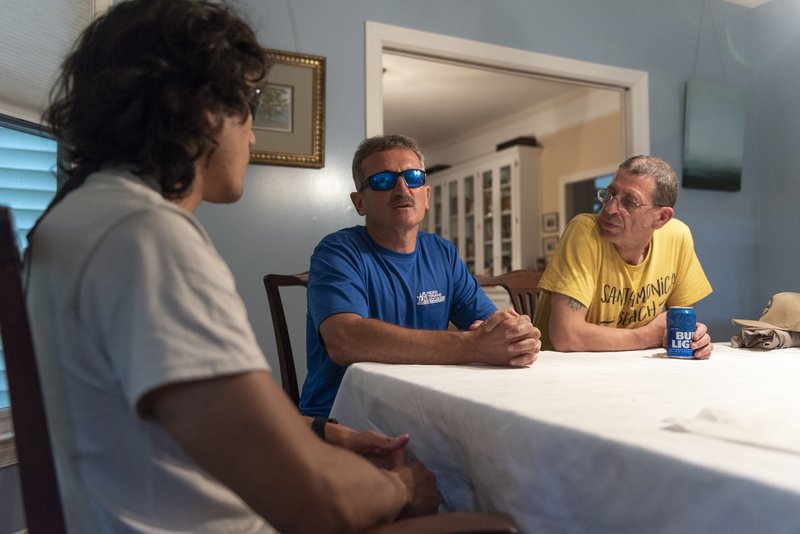Blinded in combat, a group of American and British veterans don’t want their disability to deter them from doing as others do — and that includes hiking the Appalachian Trail.
“We’ve all have lived through some traumatic change, and we are continuing to live through it,” said Steve Baskis, who lost his eyesight after being wounded by an improvised explosive device in Iraq in May 2008.
“I think hiking the trail demonstrates our willingness to strive to do hard and ambitious things. We haven’t lost our vision, just our sight.”
Baskis is one of five Americans from the around the U.S. — none locally — and two British veterans taking on the 74-mile hike to the trail’s Georgia section, with the help of sighted guides.

The journey began Friday, June 1, and ends Wednesday, June 6, at Camp Frank D. Merrill in Lumpkin County. The night before the hike, they gathered for a social event at the Murrayville home of Joe Amerling, who helped coordinate the effort.
“They started out wanting to do the whole trail,” which begins in Dawson County and ends in Maine, Amerling said. “We cut it down to Georgia, to what we could support.”
Amerling, retired from the Gainesville Police Department, where he worked with the Multi-Agency Narcotics Squad, got involved with the group through a longtime friend and former fellow Army Ranger, Daniel Wallace.
Wallace had suffered blindness after a 2003 suicide car bomb attack in Iraq and “was, for the lack of better term, in denial,” Amerling said.
Later, Wallace “got involved with blinded veterans and wanted to do an operation up here,” so he contacted Amerling.
Operation Peer Support — a program run by the Blinded Veterans Association — is sponsoring the Appalachian Trail hike and has set up a website, Blind Appalachian Trail, which describes the mission and participants and features a map showing the route.“Participants will complete sections of the trail over time, around specific dates to memorialize great military accomplishments that represent the freedom gained by overcoming our adversaries,” the website states.

The June 6 completion is significant in that it coincides with the 74th anniversary of D-Day, the Allied invasion of Normandy, France, in World War II. Veterans plan to rappel into Camp Merrill to symbolize Army Rangers scaling the cliffs at Normandy to destroy German gun emplacements.
“The idea is to allow participants the opportunity to overcome their own adversities they face through their injuries and to raise awareness and understanding with the general public and those that may be out there that may have their own challenges,” according to the website.
Another retired Army Ranger, Tom Wilburn of Suches, has spent the past two months checking out the trail so that “there are no surprises,” Amerling said.
“I just (checked) each individual section ... to make sure there was nothing unforeseen or something we thought that might be an insurmountable obstacle in the way of rocks or something like that,” Wilburn said. “It will be very doable for us.”


